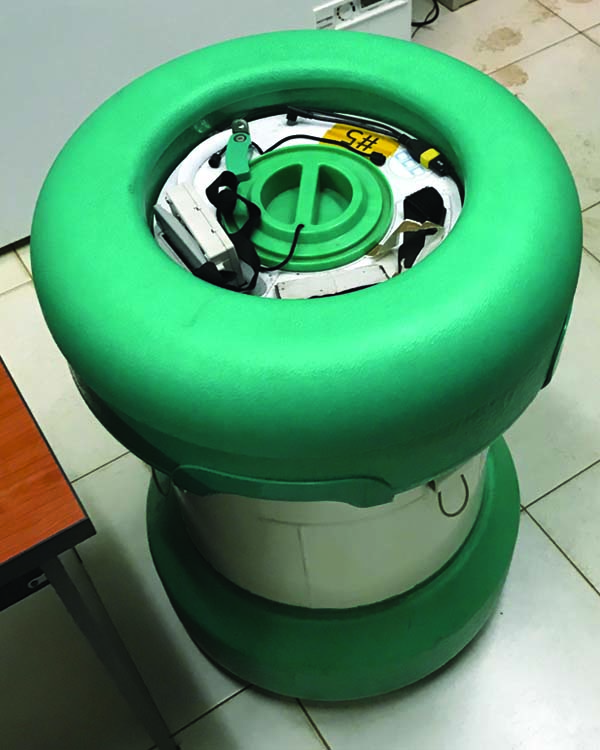Background
Study Duration: 2015–2016
Sponsor: U.S. Centers for Disease Control and Prevention (CDC)
Collaborator(s): College of Medicine and Allied Health Sciences of the University of Sierra Leone (COMAHS) and the Sierra Leone Ministry of Health and Sanitation
Therapeutic Area: Infectious disease
Indication: Ebola virus disease (EVD)
Intervention: Vaccine
Phase(s): II/III
Rapid study start-up for crisis-response settings, including:
- Study management
- Capacity building of clinical site and laboratory personnel
- Ongoing site support
- Clinical trial monitoring
- Hiring and managing of data entry staff
- Cold chain technical assistance
- Staff training
Challenge
In August 2014, the first meeting of the Emergency Committee convened by the Director-General of the World Health Organization (WHO) under the International Health Regulations (2005) [IHR (2005)] declared the Ebola virus disease (Ebola) outbreak in West Africa an “extraordinary event” and a public health risk. It was the unanimous view of the Committee that the conditions for a Public Health Emergency of International Concern (PHEIC) had been met and that a coordinated international response was necessary to stop and reverse the international spread of Ebola.1
A live replication-competent vaccine (rVSVΔG-ZEBOV-GP), one of two candidate Ebola vaccines under Phase I investigation at the time, was to be evaluated in a Phase II/III clinical trial.2 The study team faced several challenges in initiating their trial amid an active outbreak. Only 12% of Sierra Leone’s roads are paved, and electricity is limited to major cities, with intermittent outages throughout the day.3 Generators and other power sources are used in other areas of the country.3 The vaccine’s stability profile required storage to remain at -76°F before dilution and 35–47°F after dilution. Freezers that could maintain the coldest temperature were not available in the country.3 In addition, the vaccine had to be transported twice: once up to 120 miles to rural cold chain depots (before dilution) and then again up to 50 miles to the vaccination sites (after dilution). Temperature regulation was complicated by ambient temperatures of 73–88°F.
Challenges with initiating the study in a resource-limited setting:
Only 12% of major
roads paved
Electricity limited to intermittent use throughout day
No freezers available to meet required -76°F storage temperature
Limited healthcare resources with no vaccine clinical trial experience
Solution
As no previous clinical research had ever been conducted in Sierra Leone, the Global Research Services (GRS) division of FHI 360, now FHI Clinical, was enlisted as a sub-contractor to support rapid start-up and provide study management, ongoing site support, clinical trial monitoring, data clerks, data entry, and cold chain technical assistance.
The clinical team on the ground immediately began preparing for the study by clarifying roles and responsibilities of all personnel, creating a detailed communications plan, and prioritizing critical start-up activities. Technical teammates were deployed to Sierra Leone after the receipt of necessary visas and all required vaccines. Upon entry, the team evaluated study sites for readiness, established a centralized office, updated training materials, trained in-country staff, and procured necessary resources.
Exercising flexibility was critical throughout the STRIVE study. Interim measures, including working from temporary office locations, allowed the team to start the project at full speed while office and living space were procured.
Additional start-up activities included:
- Hiring office staff within days of arriving in the country
- Coordinating arrival of all clinical research associates (CRAs) and non-local staff
- Hiring data entry clerks and helping set up and manage data centers
- Initiating seven study sites across five geographical districts
- Providing Good Clinical Practice (GCP) and study-specific training for more than 300 newly hired study staff within one month of arrival
- Partnering with Modality Solutions, experts in cold chain logistics, to manage reliable access to electricity, vaccine storage temperature, transportation, on-site staff training and security

An image of an Arktek phase-change material container modified for use in STRIVE. So as not to risk the vaccine going out of the storage temperature range, the vaccines were packed in Arktek DF containers in their original boxes of 20 vials.³
Results
The study team succeeded in enrolling 8,651 participants.
Additional results included:
- Enabling first patient first visit (FP/FV) six weeks after arrival in Sierra Leone
- Continuing training for the 300-member staff, as needed, throughout the trial
- Complying with local labor and tax laws
- Maintaining real-time visibility to study costs
- Sustaining a rigorous invoicing process
99.998% accuracy of the planned-to-execute budget using robust financial platform
resources
1 World Health Organization. Statement on the 1st meeting of the IHR Emergency Committee on the 2014 Ebola outbreak in West Africa. November 02, 2014. Retrieved March 14, 2019, from https://www.who.int/mediacentre/news/statements/2014/ebola-20140808/en/
2 STRIVE (Sierra Leone Trial to Introduce a Vaccine Against Ebola). March 4, 2015. Retrieved March 14, 2019, from https://clinicaltrials.gov/ct2/show/NCT02378753
3 Jusu M, Glauser G, Seward J, et al. Rapid establishment of a cold chain capacity of –60°C or colder for the STRIVE Ebola vaccine trial during the Ebola outbreak in Sierra Leone. The Journal of Infectious Diseases. 2018;217:S48-S55.

